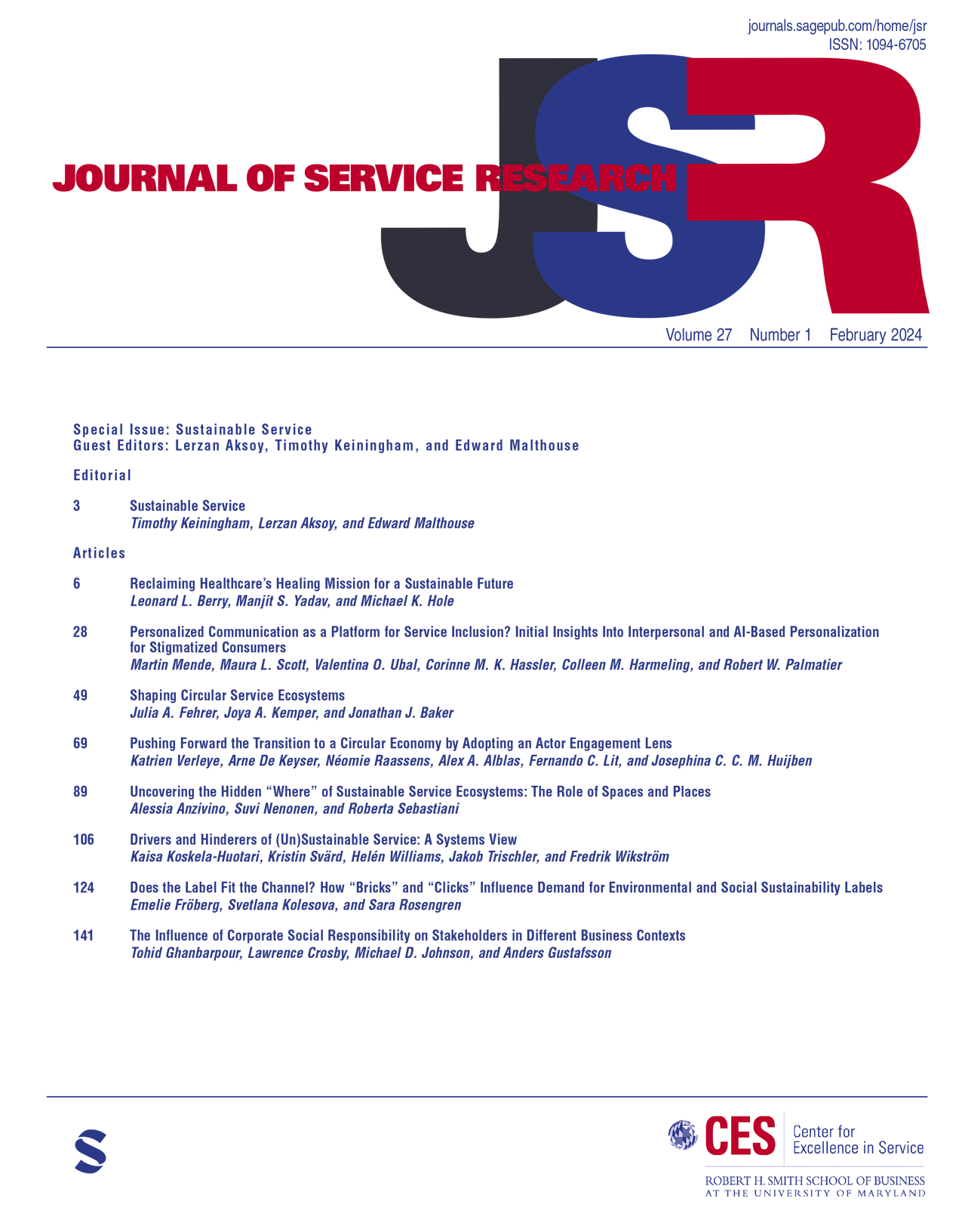Artificial Intelligence as a Service, Economic Growth, and Well-Being
IF 8.6
2区 管理学
Q1 BUSINESS
引用次数: 10
Abstract
The share of artificial intelligence (AI) jobs in total job postings has increased from 0.20% to nearly 1% between 2010 and 2019, but there is significant heterogeneity across cities in the United States (US). Using new data on AI job postings across 343 US cities, combined with data on subjective well-being and economic activity, we uncover the central role that service-based cities play to translate the benefits of AI job growth to subjective well-being. We find that cities with higher growth in AI job postings witnessed higher economic growth. The relationship between AI job growth and economic growth is driven by cities that had a higher concentration of modern (or professional) services. AI job growth also leads to an increase in the state of well-being. The transmission channel of AI job growth to increased subjective well-being is explained by the positive relationship between AI jobs and economic growth. These results are consistent with models of structural transformation where technological change leads to improvements in well-being through improvements in economic activity. Our results suggest that AI-driven economic growth, while still in the early days, could also raise overall well-being and social welfare, especially when the pre-existing industrial structure had a higher concentration of modern (or professional) services.人工智能作为一种服务、经济增长和福祉
在2010年至2019年期间,人工智能(AI)职位占总职位发布的比例从0.20%上升到近1%,但美国各城市之间存在显著差异。我们利用美国343个城市的人工智能招聘新数据,结合主观幸福感和经济活动数据,揭示了服务型城市在将人工智能就业增长的好处转化为主观幸福感方面发挥的核心作用。我们发现,人工智能招聘岗位增长较快的城市,经济增长也较快。人工智能就业增长与经济增长之间的关系是由现代(或专业)服务集中度较高的城市推动的。人工智能的就业增长也会带来幸福感的提高。人工智能就业增长对主观幸福感增加的传导渠道可以通过人工智能就业与经济增长之间的正相关关系来解释。这些结果与结构转型模型一致,即技术变革通过改善经济活动导致福祉的改善。我们的研究结果表明,人工智能驱动的经济增长虽然仍处于早期阶段,但也可以提高整体福祉和社会福利,特别是当现有产业结构中现代(或专业)服务的集中度较高时。
本文章由计算机程序翻译,如有差异,请以英文原文为准。
求助全文
约1分钟内获得全文
求助全文
来源期刊

Journal of Service Research
BUSINESS-
CiteScore
20.30
自引率
6.50%
发文量
28
期刊介绍:
The Journal of Service Research (JSR) is recognized as the foremost service research journal globally. It is an indispensable resource for staying updated on the latest advancements in service research. With its accessible and applicable approach, JSR equips readers with the essential knowledge and strategies needed to navigate an increasingly service-oriented economy. Brimming with contributions from esteemed service professionals and scholars, JSR presents a wealth of articles that offer invaluable insights from academia and industry alike.
 求助内容:
求助内容: 应助结果提醒方式:
应助结果提醒方式:


